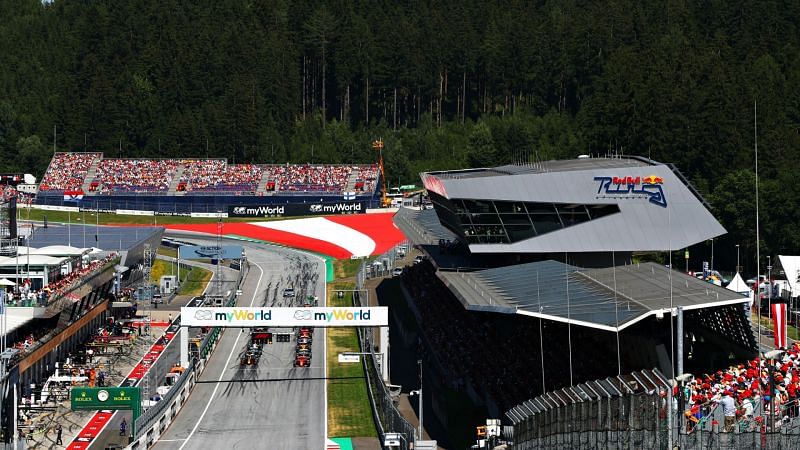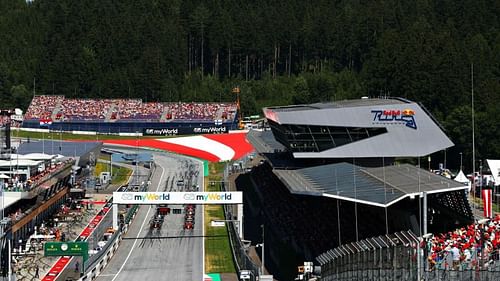
F1 2020: What has changed during the coronavirus delay?

At long last, the 2020 Formula One season will finally begin this week.
The action will begin with the Austrian Grand Prix behind closed doors at the Red Bull Ring, with the Steiermark Grand Prix being held at the same track the following weekend.
Silverstone will also stage two races this year, with Hungary, Spain, Belgium and Italy the only other confirmed events as things stand.
The season had been due to get underway with the Australian Grand Prix in March, but it was cancelled after a member of the McLaren garage tested positive for COVID-19.
A lot of things have changed since then, so we have recapped the biggest stories during the four-month coronavirus hiatus.
Vettel decision sparks driver changes
Ferrari announced that four-time world champion Sebastian Vettel would not remain with the team beyond the end of this season.
The German has yet to find another seat in F1, with Carlos Sainz to replace him at Ferrari and Daniel Ricciardo leaving Renault for McLaren.
Someone’s excited to be back #essereFerrari #Seb5 pic.twitter.com/j9IY0jEhAT
— Scuderia Ferrari (@ScuderiaFerrari) June 29, 2020
Toto Wolff confirmed Mercedes are monitoring Vettel's situation, though Valtteri Bottas claims he was told by the Silver Arrows there is nothing to the story.
Renault are yet to disclose who will take Ricciardo's place in 2021, with a shock return for two-time champion Fernando Alonso mooted.
Regulation changes pushed back to 2022
The pandemic forced a number of teams to furlough staff or reduce the size of their workforce, while F1 brought its mandatory mid-season shutdown period forward and extended it.
Together with the reduction in income from the lack of racing, sweeping changes to the technical regulations that were expected to challenge Mercedes' dominance of the series have been pushed back.
Teams will now contest the 2021 season in the same cars as this year, with the new rules instead coming into effect from 2022.
#F1 - Following unanimous agreement between the FIA, @F1 and all teams, the implementation of the Technical Regulations due to take effect from the 2021 season will be postponed until 2022.https://t.co/Sc9EFEGL2O
— FIA (@fia) March 19, 2020
Budget cap implemented and reduced
In a bid to level the playing field in F1, for the first time a cost cap will come into effect from the 2021 season. This will limit the amount teams can spend on their cars to $145million.
The cap had initially been set at $175m but was lowered to avoid the possibility of some constructors spending up to that limit while others found themselves incapable of doing so due to the financial impact of the coronavirus crisis.
In 2022 the cap will be reduced to $140m, before dropping to $135m the following year and remaining there. This was done to make it easier for the bigger teams to adjust the size and scale of their operations.
COST CAP
— Formula 1 (@F1) May 27, 2020
The budget restrictions, already slated for introduction in 2021, has been significantly reduced for next season#F1 pic.twitter.com/fjDVkP4ZQx
Mercedes manoeuvring
A key member of Mercedes' six-year domination of F1 has left the team.
Managing director Andy Cowell, who had direct responsibility for the F1 power unit, helped establish Mercedes at the pinnacle of the sport in his 16 years with the team, but Hywel Thomas took over from him on July 1.
NEWS: Mercedes-AMG High Performance Powertrains announces a revised senior management structure, Andy Cowell to leave his position as Managing Director https://t.co/vtFbalEzcy
— Mercedes-AMG F1 (@MercedesAMGF1) June 15, 2020
Mercedes team principal Wolff bought a stake in Aston Martin, which is controlled by Racing Point owner Lawrence Stroll.
Wolff insisted a personal investment "has nothing to do with Formula One", despite the fact Racing Point will be rebranded as Aston Martin on the 2021 grid.
A push for diversity
Six-time champion Lewis Hamilton criticised the Formula One community for its silence in the wake of the death of George Floyd in police custody in Minneapolis in May, which sparked anti-racism protests around the globe.
The 35-year-old Briton subsequently partnered with the Royal Academy of Engineering to create The Hamilton Commission, looking at how more young people from black backgrounds can be brought into motorsport or be employed elsewhere in the field of engineering. F1 has also set up a new task force to increase diversity and inclusion in the sport.
Mercedes signalled their commitment to fighting racism and discrimination by unveiling an all-black livery in support of the Black Lives Matter movement, switching from their traditional Silver Arrows design.
Hamilton and Bottas will race in black overalls, while 'End Racism' will feature on the halo of both cars and the F1 initiative #WeRaceAsOne will appear on the mirrors.
https://t.co/8GE4K3UwRK
— Lewis Hamilton (@LewisHamilton) June 29, 2020